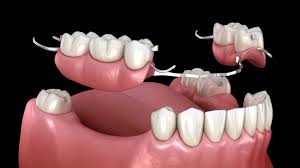Nissan Honda hook up shows Japanese EV makers mean business

If you look at the rankings of electric vehicle makers you would be forgiven for thinking that the top two spots are stitched up between Tesla [NASDAQ:TSLA] and China’s BYD while everybody else is trailing behind, including the biggest German car manufacturers. With the dizzying speed of the expansion of EVs over the last few years Japanese car makers ended up lagging behind, with only Hyundai making it into the list of the world’s top 10 EV manufacturers, this despite Japan having at least three entrants in the top ten list of conventional car makers.
But a hook up between Japanese rivals Honda Motor (HMC) and Nissan Motor (NSANY) this week and Toyota’s recent announcement on progress with solid state batteries shows that Japanese car makers have no intention of being left behind in the EV sales race.
Honda and Nissan, the world’s number seven and number nine in terms of production and competitors on a normal day, are looking into building a strategic partnership on key components for electric vehicles and in artificial intelligence in car software.
Nissan used to lead the EV pack with its all-electric Leaf model but recently has not made as much progress with new models as, for instance, China’s BYD which has seen explosive growth over the last few years.
The Honda-Nissan partnership could help the two companies develop economies of scale not only in Japan but also overseas. Nissan has existing business alliances with Renault and Mitsubishi Motors which will not be affected by a potential alliance with Honda. Nissan’s collaboration with Renault on EVs is restricted mainly to Europe as the next Nissan electric Micra will be built in the same plant in Northern France as the Renault Five.
Solid state batteries
Toyota also recently hit the headlines with claims that it is on the cusp of manufacturing solid-state batteries at scale. If successful, Toyota’s solid-state batteries could give electric vehicles a range of 1,200km, more than twice the range of most battery-powered vehicles with charging time of 10 minutes or less.
A solid-state battery replaces the liquid electrolyte in a lithium-ion battery with a solid electrolyte. The resulting battery can achieve much greater energy density and can be made much smaller. Toyota plans on having solid-state powered cars on the market by 2027 or 2028.
Toyota is not alone in working on solid-state batteries – Chinese car maker Nio is planning on adding solid state batteries to 11 of its models – and here speed will be of the essence. The car maker that manages to progress this technology over the next few years can expect to reap a large segment of the global market.
What is interesting about this week’s news is that the new wave of regionalism/nationalism in EV production has mostly focused on the rivalry between the US and China, but what has until now flown below the radar is that other countries are also circling their wagons in order to make headway in this booming market. This will be good news not only for car buyers but also for equity investors.
Nissan’s shares are up 7.7% on the week while Honda is ticking higher at 3.14%. Toyota is down 0.29% on the week and up 23% on six months.


 United Kingdom
United Kingdom Argentina
Argentina  Australia
Australia  Austria
Austria  Brazil
Brazil  Canada
Canada  Germany
Germany  Ireland
Ireland  Italy
Italy  Malaysia
Malaysia  Mexico
Mexico  New Zealand
New Zealand  Poland
Poland  South Africa
South Africa  United States
United States 





















